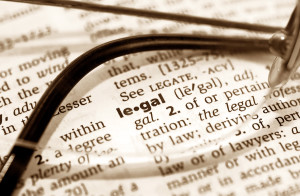What is a Criminal Defense Attorney?
What is a Criminal Defense Attorney?
It is the job of criminal defense attorneys to represent those charged with crimes in court. Crimes can range in severity from a misdemeanor to a felony. Punishment can range from a minor fine or community service to years in prison or even death.
Representation during criminal proceedings is critical for those charged with committing a crime. In fact, the U.S. Constitution promises that all citizens charged with a crime will be provided representation. If you have retained the services of a criminal law lawyer or are seeking to retain one, you should know what services your attorney may be able to perform.
Why are Criminal Defense Attorneys Important?
Criminal law is a complex body of state and federal legislation. In fact, each state often sets its own definitions and punishments for state crimes. The majority of crimes are state crimes. Exceptions include causing damage to federal property or inflicting injury upon a federal employee.
The average person will not have an understanding of criminal law or the criminal justice process. Unfortunately ignorance or failing to understand criminal law is rarely an adequate defense to avoid being found guilty.
Although an individual has the right to represent himself or herself during criminal trial proceedings, the consequences of having poor legal representation can be severe. Misdemeanors, which are lesser crimes, might only entail a fine or a brief jail sentence, but felonies, which are more serious crimes, can lead to long prison terms. This is why it is so important to have someone knowledgeable about the law argue on your behalf.
Criminal Defense Attorney Services Pre-Trial
Criminal defense attorneys can assist clients throughout the criminal justice process, including pre-trial. Some people choose to retain a lawyer during the investigation period of a crime, before they are even charged. This often happens if someone is a suspect and has reason to believe that he or she will soon be charged. In these instances, a criminal defense lawyer may help instruct the individual while being questioned by authorities to ensure the suspect doesn’t divulge any incriminating information.
A criminal defense attorney can also help convince a court to drop charges against you based on insufficient evidence or improper procedure. For example, in many instances a police officer must have probable cause before making an arrest. Probable cause means a compelling reason to believe that you may have committed a crime. Criminal defense attorneys have a nuanced understanding of probable cause as it is defined within your jurisdiction and may be able to present a challenge to the officers reasoning in court. If the attorney can show that the officer may not have had probable cause to investigate the alleged crime scene and make an arrest, charges against you may be dropped before a trial even begins.
In addition, when you are arrested for a crime, you may be detained pending trial. However, you usually can be released as long as you provide a certain amount of money called bail. Bail is intended to ensure you show up for trial. A criminal defense attorney can attempt to persuade the court to reduce your bail or waive it altogether.
If you know you will be found guilty of committing a crime, you may want to try to enter into a plea bargain with the prosecution. A plea bargain is a negotiated agreement to reduce charges to a lesser crime or reduce sentencing. Your attorney can represent you during plea negotiations to increase your chances of receiving a reduced punishment. For example, if you are a minor and are accused of assault, some jurisdictions may wish to charge you as an adult. However, with the use of an attorney, you may be able to negotiate a deal so you instead are charged with juvenile assault.
Criminal Defense Attorney Services at Trial
Criminal defense attorneys can also assist you during the criminal trial. They can analyze your case, identifying its strengths and weaknesses. From there, your attorney and you can collaborate to come up with a defense strategy.
Your attorney can also discuss the pros and cons of pleading guilty, especially when a plea bargain may be on the table.
Your lawyer can also assist with the standard steps of a criminal trial, from jury selection to providing opening statements to questioning witnesses. And if your trial does not go in your favor, criminal defense attorneys can assist you with the appeals process.
We hope this information is helpful.
Respectfully,
DLO

